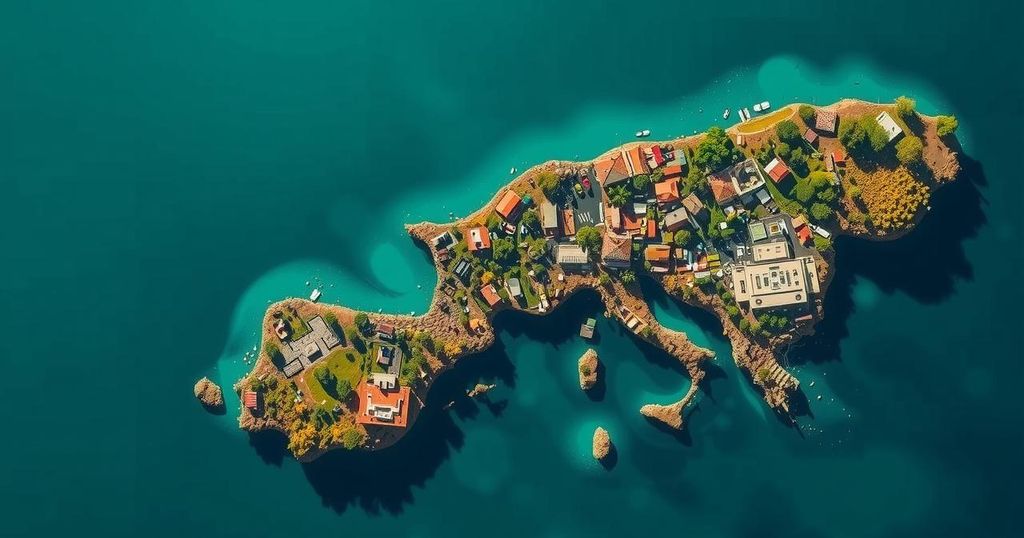Sardinia is actively fighting for climate action, asserting its autonomy in energy planning while emphasizing local interests over external corporate projects. Protests have led to significant public support for retaining regional control over renewable energy measures. The island’s cultural heritage informs its resistance against top-down energy policies, aiming for a sustainable future that honors its historical identity amid ongoing legal challenges.
Sardinia is taking a significant stand in the fight against climate change, aiming to reshape its energy future amidst ongoing tensions with the Italian government. In the picturesque town of Gavoi, a screen behind the mayor’s office displays data on energy production and carbon emissions, casting a hopeful light on the region’s ambitious solar initiatives. During the upcoming COP29 climate talks in Baku, President Alessandra Todde emphasized Sardinia’s commitment to combating the climate emergency, particularly in light of recent flooding disasters that have affected the Mediterranean region.
Sardinia’s proactive approach has manifested through protests led by thousands of residents who submitted over 210,000 signatures supporting local control over renewable energy projects. This grassroots movement seeks to challenge the Italian government’s plans that prioritize speculative private energy developments. President Todde’s defiance was clear when she stated, “Sardinia, like it or not, will not accept to passively suffer decisions made from above.”
By asserting its autonomy, Sardinia aims to lead a green transition defined by local needs and considerations, as opposed to top-down directives from Rome. The Regional Council responded to the pressure from external energy firms by temporarily suspending numerous renewable energy projects, initiated under former Prime Minister Mario Draghi, to allow for comprehensive planning.
In doing so, Sardinia has joined an array of global movements demanding local rights in the face of climate change. The island’s rich cultural heritage, exemplified by the numerous archaeological sites from the Nuragic civilization, is central to this struggle, as locals fear that energy development will undermine their historical identity. Notable figures such as writer Antonio Gramsci and former president Renato Soru have underscored the significance of preserving Sardinia’s cultural landscapes while transitioning to renewable energy.
Stepping beyond mere resistance, Sardinians are setting forth a vision for sustainability that intertwines environmental preservation with cultural heritage. The evolving dialogue, communities, and individual initiatives in Sardinia reflect a broader trend towards empowerment and ecological consciousness. As the legal battle over energy jurisdiction unfolds, Sardinia sends a powerful message to both Italy and the global community about the necessity of decentralized and equitable climate action.
Sardinia, an autonomous region of Italy, is making strides as a climate-focused leader amidst a growing global tension regarding energy policies driven by private institutions. The region’s recent flooding disasters and its rich cultural heritage have galvanized local citizens and leaders to assert their authority over energy planning and environmental protection. In doing so, Sardinia seeks to reclaim its jurisdiction and ensure that renewable energy initiatives benefit the local population rather than serving corporate interests. Through protests and legislative actions, the island is redefining the narrative around renewable energy while maintaining a connection to its historical identity.
In conclusion, Sardinia’s journey toward sustainable energy reflects a broader movement advocating for local governance and empowerment in the climate crisis. By combining cultural heritage preservation with the pursuit of renewable energy, Sardinia offers a unique and instructive model for balancing ecological responsibility with respect for historical identity. As legal battles continue over energy jurisdiction, the island remains committed to leading its green transition on its own terms, thereby setting a precedent for other regions facing similar challenges in an era of climate urgency.
Original Source: www.salon.com






